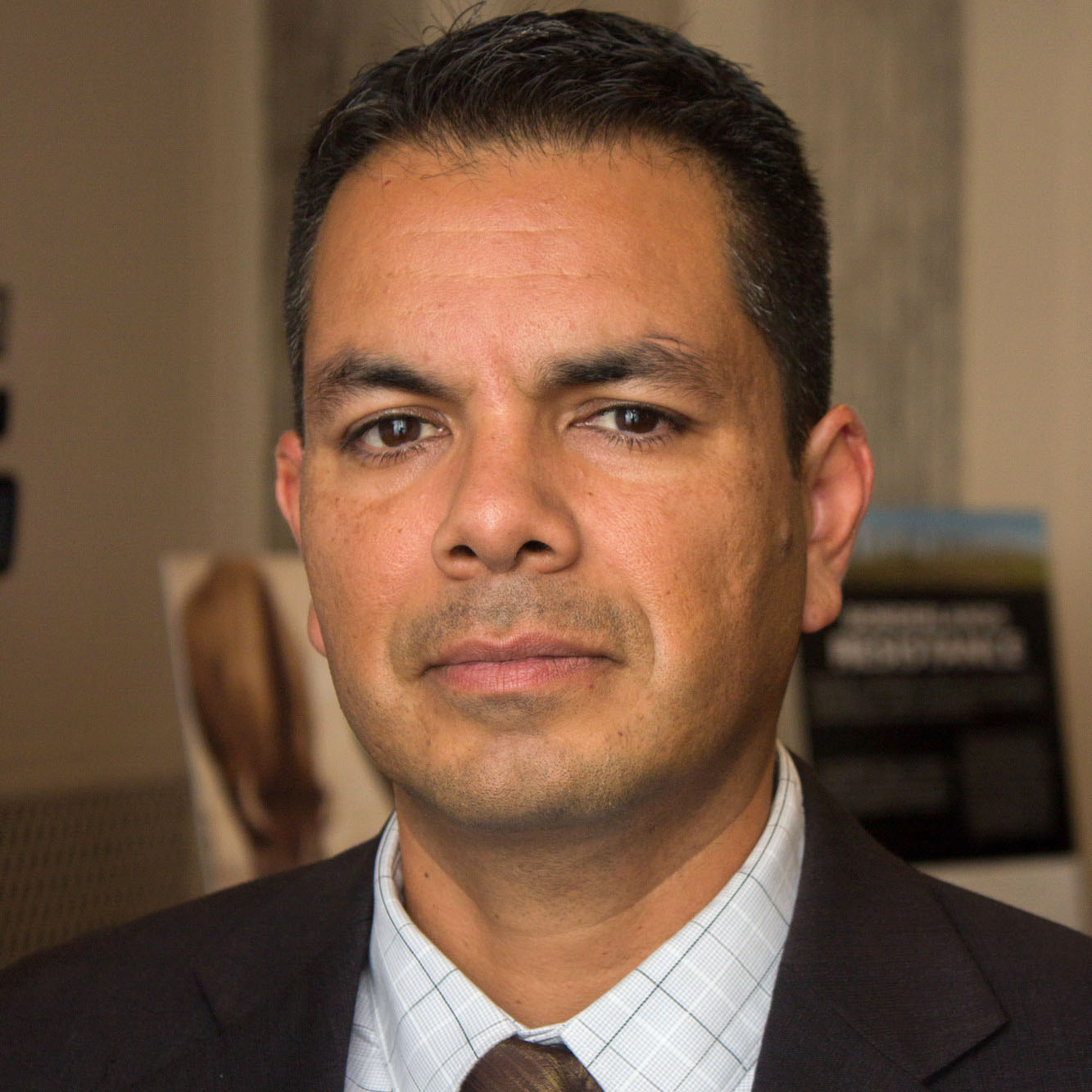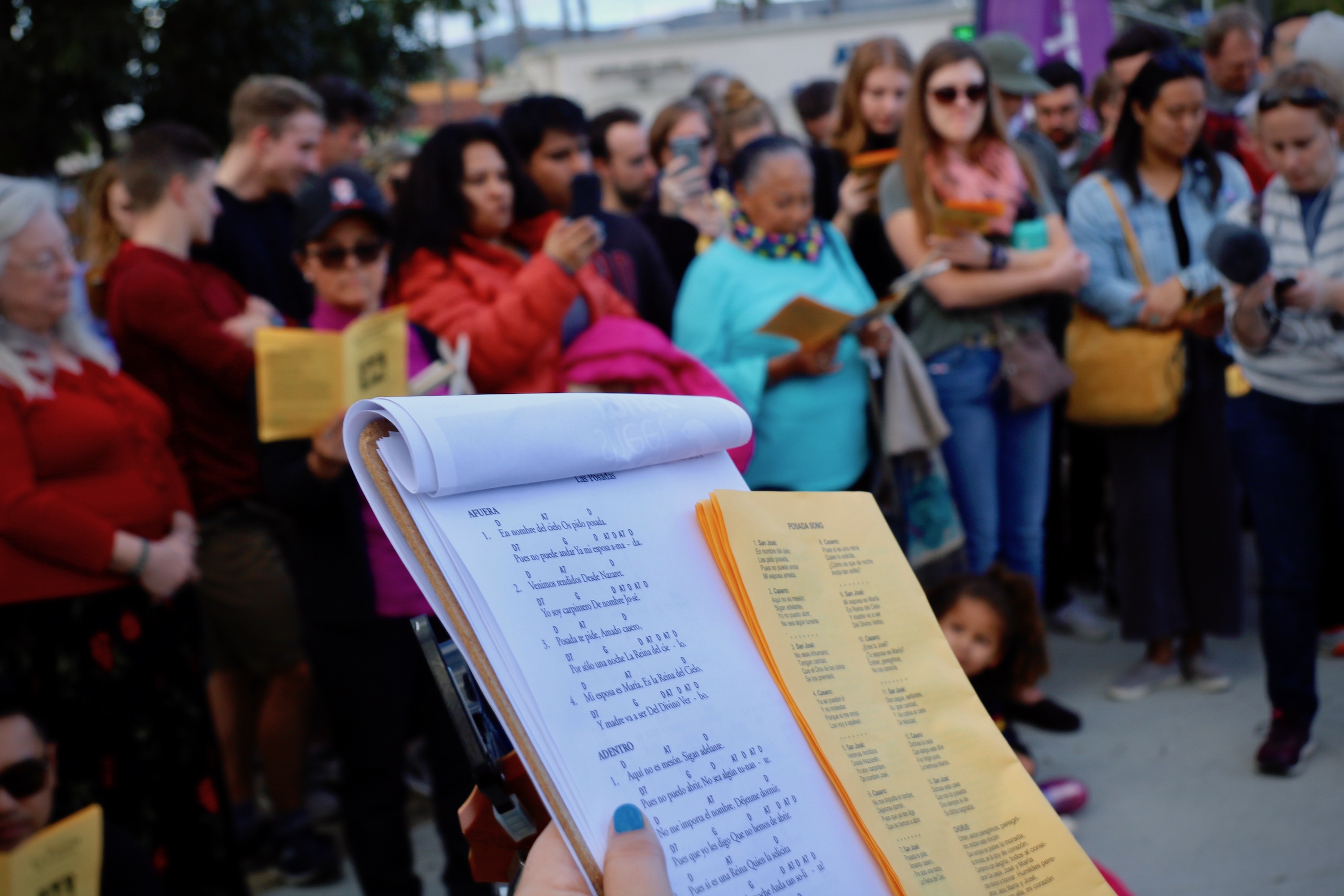
Posada Sin Fronteras, a transnational gathering organized every December by AFSC is San Diego, California and Tijuana, Mexico. Pedro Rios / AFSC
On Dec. 14, 2019, more than 200 faith leaders, migrants, and community members gathered at a park near the San Diego border to celebrate the 26th annual Posada Sin Fronteras (Posada Without Borders). In Tijuana, people also congregated at Mexico’s northwestern border with the United States. Organized by AFSC and partner organizations, the event reenacts Mary and Joseph’s search for shelter anticipating the birth of Jesus. It follows in the Advent tradition of communities throughout Latin America and within the United States that organize posadas, celebrating the nativity story of Jesus’ birth according to Luke’s Gospel.
The Posada Sin Fronteras also reminds us how walls and U.S.’s inhumane immigration and border policies jeopardize the lives of migrants seeking refuge—and why our struggle to change those policies is so important.
Iconic to posadas are the alternating call-and-response verses sung by participants as they walk from home to home in a community, until they reach the designated home where those on the street are invited in to celebrate with food and pastries. The Posada Sin Fronteras takes place at the U.S.-Mexico border wall, with people gathering on both sides. Those seeking refuge on the Mexican side of the border wall play the roles of Joseph and Mary, calling to those on the U.S. side—playing the role of an innkeeper—requesting shelter. But the imposing border wall, which is lined with concertina wire and patrolled by armed border agents, prevents the final act from taking place, leaving Mary and Joseph without a safe place to stay.
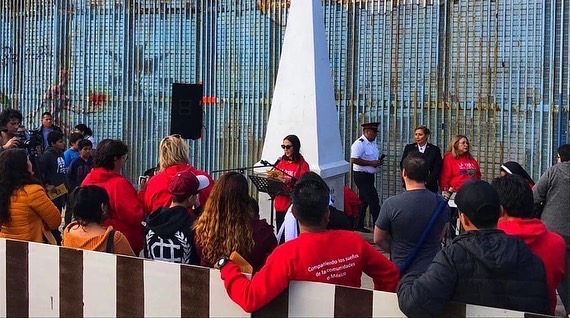
Over the past year, the U.S. has taken steps to make it nearly impossible for people to seek refuge at the southern border—and border and immigration officials have used even more aggressive tactics on migrants who need help. On New Year’s Day, 2019 began with violence when Border Patrol officials with the San Diego Sector shot tear gas and other chemical agents into Mexico at migrants gathered near the location where the Posada Sin Fronteras takes place. Unaccompanied migrant children were part of the group affected by the tear gas. One told AFSC staff that despite having crossed into the United States and requesting to turn himself over to authorities, a Border Patrol agent demanded he climb back over the primary border wall and return to Mexico.
That New Year’s Day incident was a harbinger for the Trump administration’s actions to eviscerate asylum protections for migrants. In late January, the Department of Homeland Security implemented the Migration Protection Protocols (MPP)—better known as its “Remain in Mexico” policy—which violates international and U.S. law. The unprecedented policy forces non-Mexican asylum seekers to return to Mexico for an indefinite amount of time to wait for their immigration proceedings, putting them in further danger.
AFSC’s Latin American and Caribbean program in Tijuana, together with local partners, interviewed 360 migrants at 15 shelters in Mexico. Respondents substantiated claims of violence as well as the extreme state of vulnerability that migrants face when they are returned to Mexico. They live with fear of what could happen to them because they or their families have been robbed, extorted, kidnapped, or sexually assaulted during their journey and stay in Mexico. Most migrants also have no safety net, support, or means to earn money; lack familiarity with their surroundings; and don’t know how to navigate the asylum process.
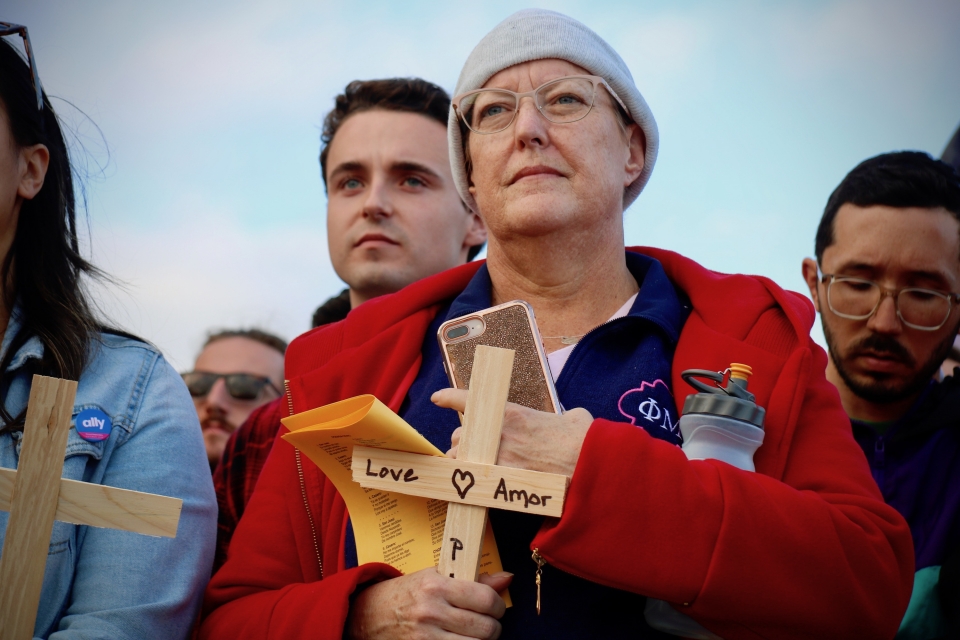
As of this writing, fewer than 0.1% (11 people of the over 47,000 forced into this program) have been granted asylum. And only 4% have attorneys representing them in court. Meanwhile, many migrants have reported being victims of violence as they wait for their court dates in Mexico.
AFSC’s U.S.-Mexico Border Program in San Diego works with communities to monitor and document instances of civil and human rights abuse by law enforcement agencies. Our objective is to change policies and practices that violate human rights—and shift the public discourse away from border militarization toward just and humane policies that benefit all migrants.
Volunteers with our program have observed weekly immigration court proceedings for people who had been forced to return to Mexico. Their observations include a father reporting having to fend off a man intending to sexually assault his daughter at a shelter in Tijuana. Most migrants appear exhausted and confused in court, not understanding the complex immigration legal system.
Frustrated by MPP, many migrants give up waiting and attempt to cross into the United States through dangerous routes and terrain, which can lead to more migrant deaths.
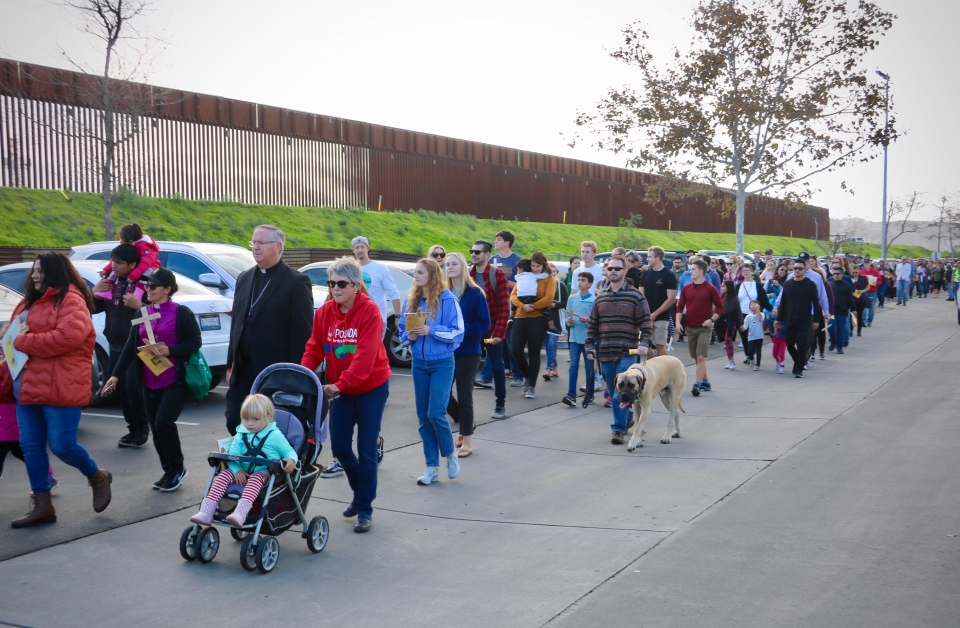
While 2018 had the calamitous distinction of being the year when the Trump administration separated thousands of children from their parents, the deadly consequences of militarizing border communities has meant that border deaths continue. In 2019, we saw the deaths of several children under Border Patrol custody–those detained in inhumane conditions.
AFSC staff recently visited a Border Patrol substation in San Diego and interviewed three families with infant children where they were detained for at least a week. The families shared that the facilities lacked sanitary conditions, they were permitted to shower only twice a week, soap or toothbrushes were not readily accessible, and the food consisted of half-cooked frozen burritos. That information with an organization monitoring violations of a legal settlement.
At the Posada Sin Fronteras, it is a tradition to call out the names of migrants who have died. After each name is read, attendees declare “¡Presente!,” which is meant to invoke the memory of that person. This year, more than half of the 40 names read were of children.
The names read included Jakelin Caal Maquin (7), Felipe Gómez Alonzo (8), Carlos Hernández Vazquez (16), and many others. It also included the names of children who died in the desert or who drowned in the Rio Grande while crossing from Mexico to the United States.
In Tijuana, our partners led a silent procession parallel to the border wall leading west toward the ocean. In San Diego, our procession went east between an outlet mall and the primary border wall, where just a year before, Border Patrol agents shot tear gas at migrants in a separate incident, which led to the shutting down of the world’s busiest land border crossing.
As we close out 2019, we must remain unwavering in our commitment to uphold the human rights and legal protections of all migrants. In the face of ongoing political assaults and the loss of more lives, we cannot afford to turn our backs on people seeking safety and shelter in the U.S.
